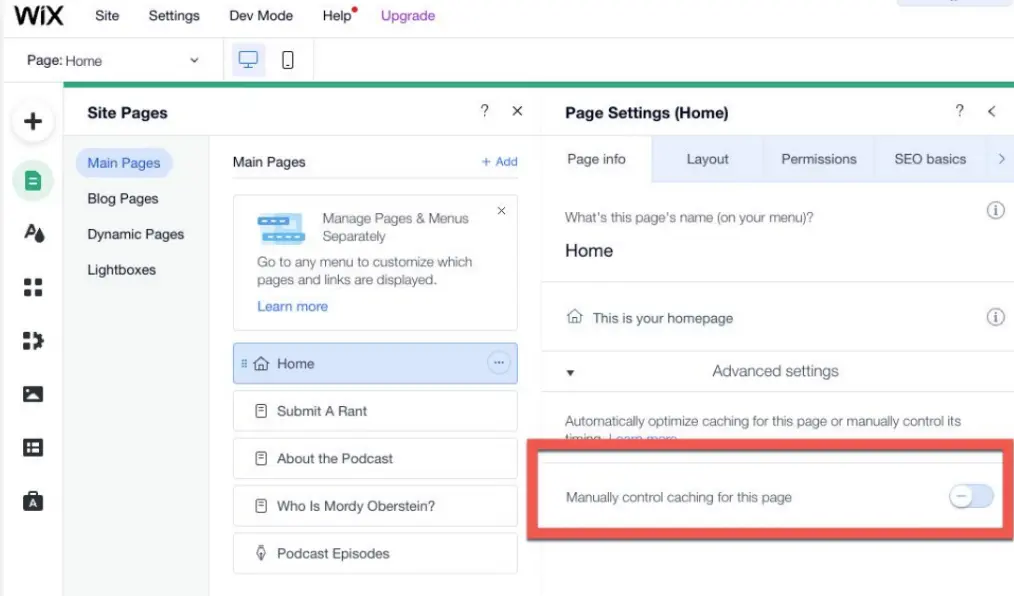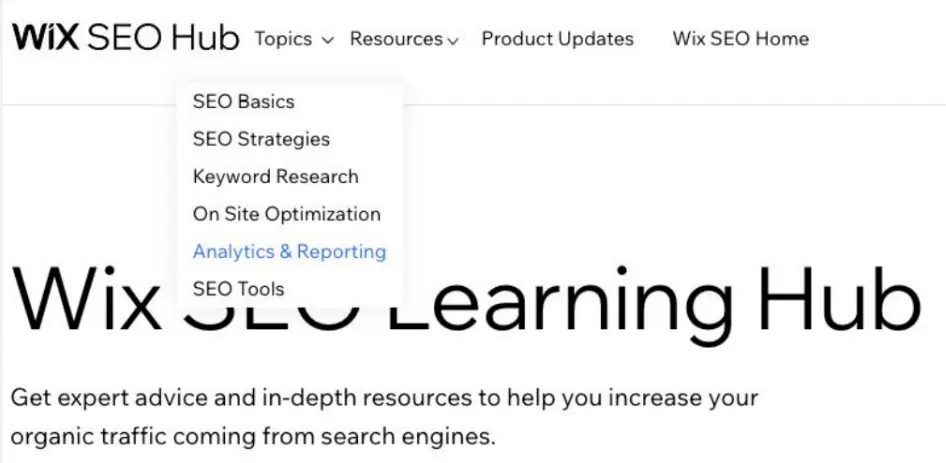Start Exploring Keyword Ideas
Use Serpstat to find the best keywords for your website
What New SEOs Should Know About Building a New Site


As amateurs in the SEO field, many beginners might feel swayed away by this sense of responsibility and overwhelmed by the number of factors to take into account to succeed. You should follow a certain plan to increase customer engagement with your site and its content. And here is where you can learn more about website design tricks and understand a decent website structure for SEOs.
Let’s get a deeper insight into the topic!
Not to miss a chance to broaden your outlook, feel free to join Serpstat events in Google Calendar and catch another star on your way to search engine optimization evolution!
New Site, New Start
Building a website for a business isn’t a luxury anymore — it is a must-have stage of your company’s development, letting you gain several benefits and grow connections with potential partners and the target audience. Thanks to the introduction of so many technologies, it has become simpler to create and adjust a new site. Is it enough to satisfy your website goals, though? According to statistics, over 75% of customers consider a web design's user interface and responsiveness as a criterion to evaluate the organization’s credibility in general.
Let’s talk about the foundations of doing SEO on a new site — setting the right expectations, how to plan a new website, where your input should be as an SEO, tracking things, how you should go about a framework for tracking, and so on. All of these are a little bit trickier because you have no context. It is a new website that represents many problems, opportunities, or whatever you want to call them.
While there are certain givens to do, including keyword research, choosing a relevant and proper domain name, and doing on-page optimization, foundational stages are commonly underestimated. For instance, working with Google Analytics efficiently obtains new data and implements more functional approaches in your SEO marketing strategy. At the same time, the lack of planning or setting wrong expectations will significantly drop your efficacy.
Choosing a Content Management System
What is the best CMS for websites? While the answer might depend on the target goals you set or the kind of business you pursue, there are certain things to remember to kick-start a new site. First, a professional content management system is exactly what you need to construct a website with automated content and many analytical benefits. When working with a new website, you should learn about its CMS specificities.
Don’t hesitate to get inspired by websites you already like. However, take the next step and discover the ins and outs of the system that the website is built on. There are many useful strategies to test if you want to understand how to determine the CMS used in a website — from simple website analysis to checking browser extensions and HHTP headers.
Once you have found the CMS and its features that correspond perfectly with the desired website structure and content creation, you can have much greater input on the website and showcase your value as an SEO. Here are some factors to get to know more about a target content management system:
- Check its defaults.
- Consider its limits. You need to know what they are — what their opportunity costs are so you can work around them.
To reach the best website availability, you must also consider CMS's possible integrations, automation, and design functionality.
Being an SEO specialist doesn’t equal becoming a professional web designer. Still, these two vocations go together when establishing a new site. While SEO literally touches all the activities on the page, its design is a variable that helps you achieve your genuine website goals.
You won't fix this mistake on other pages if you fail to represent your identity on the domain's main page. Make your home page self-explanatory. From a content point of view, it is one of the few pages on the website where you can explicitly tell not only your clients and website visitors but also Google who you are, what you do, and who you target explicitly. Having a good identity on a home page can give you the right tools and borders for the rest of the content you create on the site.
Here are some essential things any SEO expert can and should do to build their websites in a more sustainable and technology-driven manner:
- Your stats' status might be clear now, but it is crucial to benchmark them as early as possible. This way, getting a comprehensive picture of your site’s functionality is simpler. The list of such litmus-paper parameters includes the domain’s keyword rankings, website traffic, and backlinks.
- There is no need to rely on guesswork to decide what keywords to use, what content to write, or how to construct links. You are welcome to view what achievements have previously proven successful for other businesses and expand their results in your sitemap.
Automation and Availability
Aside from understanding the defaults of the target CMS, mastering its automation capacity will greatly drive your SEO performance. At the same time, you won’t proceed with your projects easily without getting a deeper insight into whether it will be website automation within the system itself or through a plug-in of the CMS-related third-party domain.
At Wix, for example, we automatically cache your pages, which is great for performance. We automatically cache pages and can do that without difficulty because we create them and know what is on them. However, if you interject custom code (you can add a custom code with a dev tool), we don’t “understand” the page in the same way.

For instance, a custom code to add a stock ticker on the page must be live in real time. Even caching the site every two hours will keep this widget outdated. So caching that in a standard way won’t be genuinely efficient.
The lesson should be learned, so the main idea is to maintain a decent degree of awareness of what is going on the page. With the help of multifunctional content management systems, you can assign responsible individuals who can add any alterations to the site and keep a better grasp of its performance. That’s when website automation and availability of all its functional elements will be close to perfection.
Setting Realistic Expectations
Regarding goals, everything is pretty straightforward — it is the end outcome you pursue through your site’s activities.
You set measurable litmus papers with key performance indicators to control and monitor your genuine efficacy. For instance, improving your website hierarchy in SERPs will be impossible without understanding how many people visit your page and interact with it. One of the methods is to check your platform’s CTR in the Google Search Console. Considering that you are setting up a new site, tracking average CTR at the beginner stages of your performance is still important.
Generally speaking, the timeline of events that SEOs usually discuss is a little misconstrued and unrealistic. To set realistic expectations for your new site and its SEO progress, don’t forget about the following analysis stages:
- Know your niche. Pay more attention to Google SERPs as an ecosystem with its dynamics of breathing and living URLs. With recent arrivals like continuous scrolling on the desktop for search and simplifying navigation between several query-relevant pages, your knowledge matters and predetermines your new site’s survival in this ecosystem.
- Realize what resources are available on this new site. As an SEO, understand what you will need but consider that there is a heck of resources being expended at once — be realistic with what you are asking for.
- Take your time to research your client business and its brand goals to see what types of SEO might fit the target performance purpose. Meanwhile, don’t forget that normal SEO results are rather slow — it can take a good year for the website to settle.
- Last but not least important, don’t let your drive and adrenaline for new achievements and success overpower your rationalism and the results of niche, website, keyword analysis, etc. The rule of thumb here is to temper your expectations to make it for the better in the long run.
Planning
With lots of data and tutorials available on the topic, let’s focus on the milestones of planning a new site and its activities.
In this context, constructive planning is impossible without knowing what the target brand is all about. When I say “know the brand”, I mean understanding the goals, persona, and tone they want to take, as well as its market role, problems, and overall identity in the niche.
Take care of your website and the communication and marketing channels it is going to use. Your task as an SEO is to ensure that a new site is a space “where these other channels can come and converge.”
Importance of Website Structure and Hierarchy
Let’s keep it simple and summarize the general benefits of establishing a well-thought-out website hierarchy for your new site:
- Since it is a new project, working on the website hierarchy is important — it’s your self-representation in the market. This way, you can boost your site’s indexing by search engines.
- A home page has categories and subcategories, which also might have subcategories. However, you don’t necessarily have to choose a more complex way — play your cards smarter.
- For instance, increase your site’s credibility with authoritative backlinks. Construct your sitemap after considering how end users will find what they want on your platform. If needed, decrease the number of pages to make navigation simpler.

- Take care of internal linking strategy when establishing and structuring a new site.
Tracking
You have to track what instruments and channels work for your target website goals. Getting a full picture of what functions properly and what does not is what helps you track efficient channels to boost your SEO efforts.
The new site doesn’t have that content, so Google may misunderstand you, which might be a great thing and a new opportunity. But you need to see how Google understands you, what’s sticking, and not.
What’s more crucial, please remember that tracking your SEO on a new site, and its overall performance helps you bring more adaptivity and versatility when things might go wrong (and they surely will at some point). From this perspective, tracking can be complemented by testing new features, tools, channels, etc.
On the other hand, SEO beginners have to understand that tracking everything about a new site is too time-consuming and might provide irrelevant and confusing data. You have to think wisely about what KPIs reflect your new site’s progress as well as in the Google ecosystem.
One tool that has gained popularity among digital marketers is the Rank Tracker in Serpstat. This tool saves time and provides an accurate snapshot of your website's direct position on SERPs at the time of analysis.
The tool also tracks your website's progress over time and provides valuable insights into which SEO strategies are working and which ones need improvement.
Having a reliable tool to track your website's position in SERPs is critical. Try the Rank Tracker during the free 7-day trial of Serpstat!
It is an excellent choice for businesses of all sizes, providing accurate and reliable data that can help you make informed decisions and drive online success.
Sign up!Analyzing User Behavior
There are several tools to distinguish user behavior patterns on a site, including Google Search Console and Google Analytics. How to implement standard means in a new domain isn't so obvious. In this case, SEO experts must think out of the box and analyze a lot of data to predict and plan end users’ reactions to the site. That’s what releasing a unique sitemap that corresponds with a brand identity and website goals is all about. Simply put, user behavior shows customer satisfaction with the platform and how well your SEO strategy meets an average user’s expectations.
The biggest mistake SEOs might make when mastering a new site is a mindset problem. You are missing almost the entire picture when you get lost in your little SEO world on a brand-new website. It is not about you and your SEO stuff. It’s about what is going on with the website overall, offering that input, and structuring it in a way that makes sense for search optimization.
Creating Content That Resonates with the Target Audience
You might not be engaged in creating content for a new site directly, but you will surely relate to the process as an SEO specialist. To make things work for Google and see your platform rise in SERPs, the domain’s content has to be qualitative, relevant, and optimized. That’s why the content plan should reveal how you understand the target audience and its needs and how you represent your business identity.
SEO helps you track and spot essential connections of brand-and-customer interactions on a new site. For instance, this doesn’t include only the number of clicks you have on a new platform. It is also about conveying SEO efforts through different types of content — authoritative backlinks and videos featuring trendy influencers will work great together.
You generally want to show progress on a new website and that you are going in the right direction, and that can be qualitative in what keywords you are ranking for and quantitative in how many impressions you get. Offer a holistic 360-degree perspective so a site owner can understand the data and pick meaningful metrics.
Wrap It Up
All things considered, setting up a new site and establishing its SEO framework is a good combination of beforehand analytics and a test-and-trial method. It is essential to stay adaptive and ready to alter things on the site that don’t seem to work efficiently, although the preliminary analysis might have shown the opposite. You shouldn’t be afraid of mistakes. On the contrary, it is a must-have to boost your awareness to cover up any failures and contribute to the efficiency of your SEO efforts.
Discover More SEO Tools
Backlink Cheсker
Backlinks checking for any site. Increase the power of your backlink profile
API for SEO
Search big data and get results using SEO API
Competitor Website Analytics
Complete analysis of competitors' websites for SEO and PPC
Keyword Rank Checker
Google Keyword Rankings Checker - gain valuable insights into your website's search engine rankings
Recommended posts
Cases, life hacks, researches, and useful articles
Don’t you have time to follow the news? No worries! Our editor will choose articles that will definitely help you with your work. Join our cozy community :)
By clicking the button, you agree to our privacy policy.


